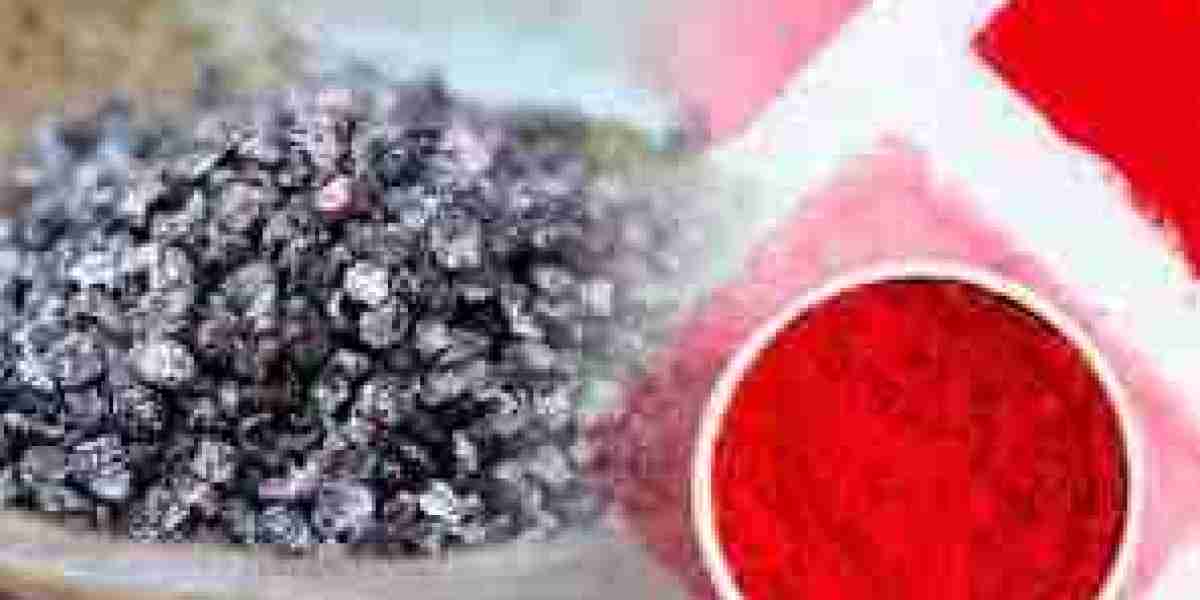The Cochineal Extract Market is significantly influenced by regional and international regulatory frameworks that govern safety, labeling, and sourcing practices across multiple industries.
Introduction
As cochineal extract continues to gain popularity as a natural alternative to synthetic colorants, regulatory bodies worldwide have imposed specific guidelines that impact its production, usage, labeling, and trade. Compliance with these evolving frameworks is crucial for manufacturers and exporters aiming to expand globally.
This blog explores how global regulations influence the Cochineal Extract Market, from producer obligations to consumer transparency standards, and how companies can navigate these challenges while maintaining growth.
Overview of Regulatory Importance
Cochineal extract (often listed as carmine or E120) is approved for use in food, beverages, cosmetics, and pharmaceuticals in many countries. However, its insect origin, allergenic potential, and ethical considerations have led regulators to impose strict guidelines. These rules affect:
Ingredient disclosure
Allergen warnings
Acceptable daily intake (ADI) levels
Sourcing and purity standards
Export/import classifications
Regulatory compliance ensures product safety, consumer awareness, and ethical trade practices.
Food and Beverage Regulations
1. United States (FDA)
The U.S. Food and Drug Administration (FDA) allows the use of cochineal extract in foods and beverages under strict labeling requirements. Since 2009, it mandates that all products containing cochineal or carmine must list it by name on ingredient labels—generic terms like "color added" are no longer sufficient.
Key Provisions:
Cochineal extract must be clearly declared
Used within established ADI limits
Products with carmine are not permitted to claim "vegan" or "vegetarian"
Failure to comply results in product recalls, fines, or bans.
2. European Union (EFSA)
The European Food Safety Authority (EFSA) regulates cochineal extract under the food additive code E120. It’s authorized for use in a wide range of food categories, but only under specific conditions.
Key Provisions:
Strict ADI of 5 mg/kg body weight/day
Mandatory E-number or full name labeling
Use restrictions in infant and young child foods
EU rules also place emphasis on potential allergenic reactions and require declaration on all food packaging.
3. Asia Pacific
Regulatory standards vary across Asia:
China: Cochineal extract is permitted in food and beverages but monitored under the National Food Safety Standard.
India: FSSAI allows carmine use, especially in confectionery and beverages, with clear ingredient labeling norms.
Japan: Cochineal is permitted, but subject to safety and purity checks.
The region is tightening controls, especially in markets with rising consumer activism.
Cosmetic Industry Regulations
1. U.S. (FDA Cosmetics)
In cosmetics, cochineal extract is allowed in products like lipsticks, blushes, and eye makeup. However, it must appear in the ingredients list as “carmine” and cannot be hidden under generic labels like “colorant.”
Additional Rules:
Vegan or cruelty-free claims cannot include carmine
FDA may inspect or seize non-compliant imports
2. EU (Cosmetics Regulation 1223/2009)
The EU allows cochineal in cosmetics but mandates:
Full INCI declaration
Animal-origin disclaimers for ethical labeling
Adherence to purity standards and batch certifications
EU consumers are particularly sensitive to ethical sourcing, prompting many brands to offer vegan-friendly alternatives as separate product lines.
Pharmaceutical and Nutraceutical Guidelines
1. Pharmaceutical Color Regulation
Cochineal extract is used in syrups, chewables, and tablet coatings. Regulatory frameworks ensure that it meets pharmaceutical-grade purity standards and safe dosage levels.
U.S. Pharmacopeia (USP) includes standards for carmine use
EMA (European Medicines Agency) requires documentation of origin and allergen potential
Codex Alimentarius influences global standards adopted by many developing countries
2. Labeling and Allergen Warnings
Because carmine can cause allergic reactions in some individuals, regulators often require warnings on pharmaceutical labels, particularly in pediatric products.
Trade and Export Compliance
Cochineal extract faces trade barriers when crossing borders, depending on how it's categorized:
As an agricultural product: subject to phytosanitary checks
As a food additive: must meet food safety standards
As a dye or pigment: evaluated under industrial chemical codes
Incorrect labeling or lack of documentation can result in:
Customs delays
Seizures or fines
Loss of export licenses
Producers and exporters must stay updated on harmonized system (HS) codes and trade treaties relevant to target markets.
Ethical and Environmental Regulations
Increasingly, regulators are including ethical and environmental criteria into ingredient approvals and public procurement rules. This includes:
Fair Trade certifications
Organic sourcing standards
Biodiversity protection laws
Countries like France and Germany are exploring sustainability reporting requirements, where cochineal extract producers may need to prove eco-friendly practices.
Challenges and Strategic Recommendations
Challenges:
Varying regulations across countries
Rising documentation and testing costs
Ethical and vegan scrutiny
Risk of allergen lawsuits or consumer complaints
Recommendations:
Invest in regulatory consulting and legal audits
Obtain multiple certifications (FDA, EFSA, Organic, Halal)
Develop dual labeling systems for different regions
Educate consumers and distributors on cochineal’s origin and safety
Conclusion
Regulations are not just a hurdle but a gateway to competitive advantage in the Cochineal Extract Market. Businesses that prioritize compliance, transparency, and ethical practices will be better positioned to thrive globally.
As authorities continue to tighten controls and consumers demand more information, staying ahead of global frameworks is no longer optional—it’s essential for sustainable success in the natural colorant space.




